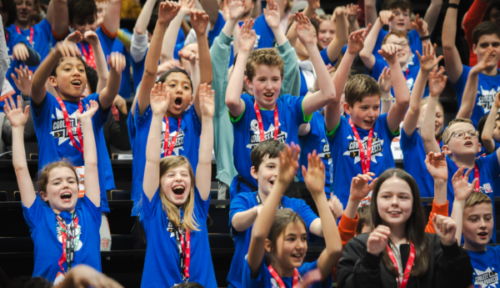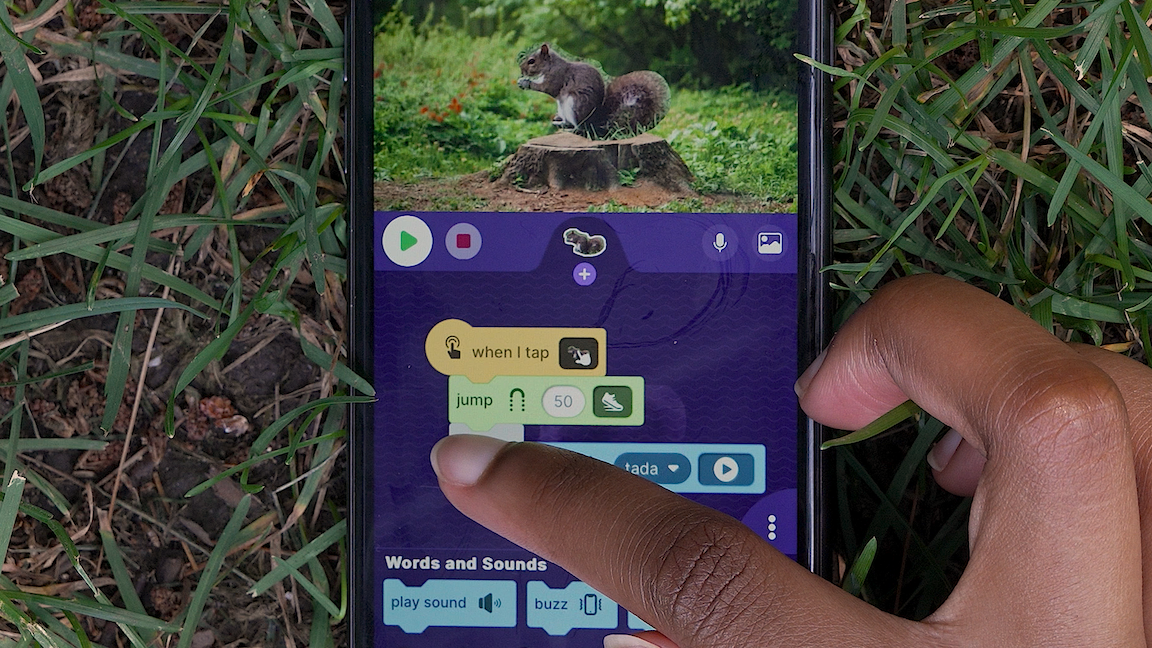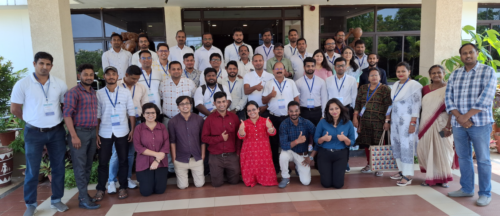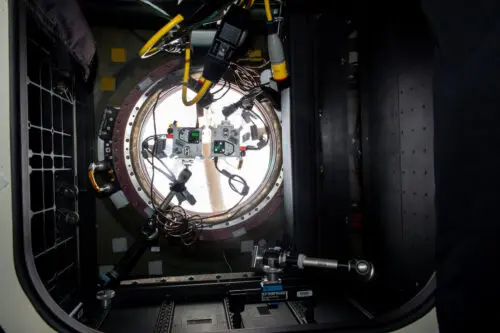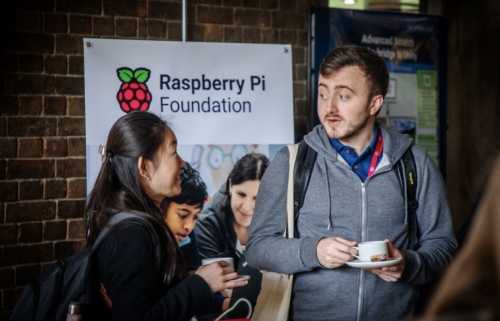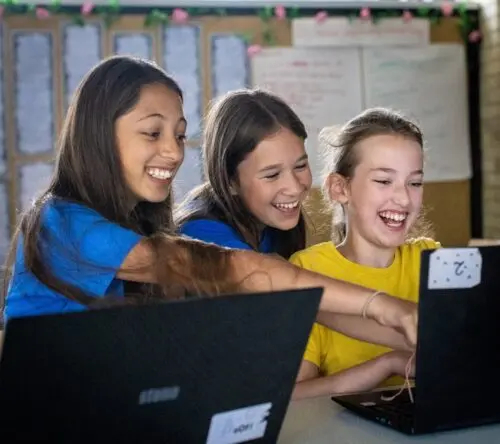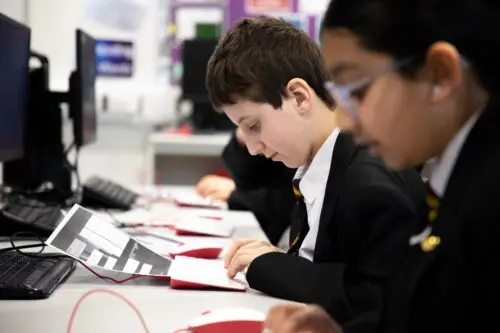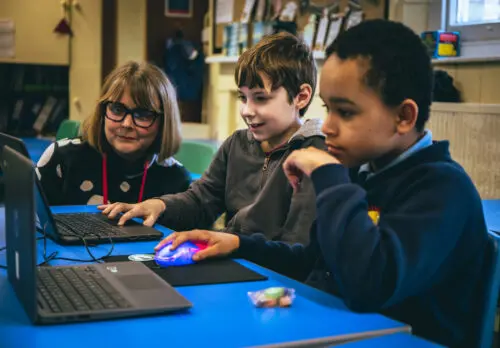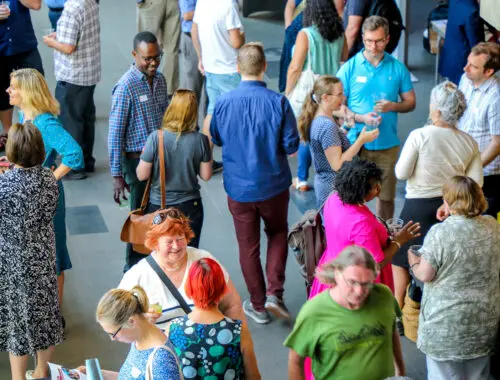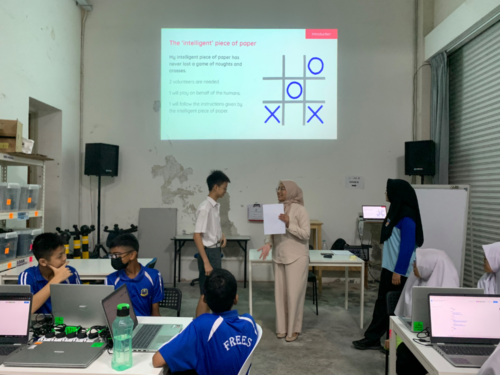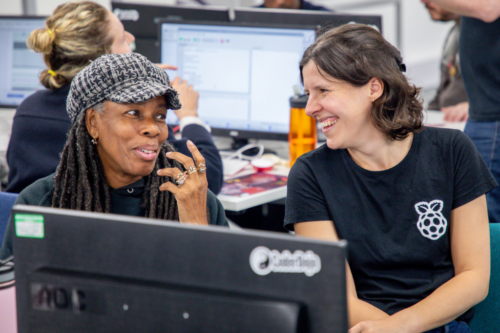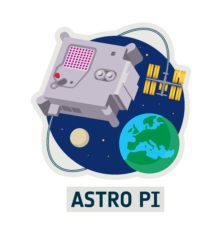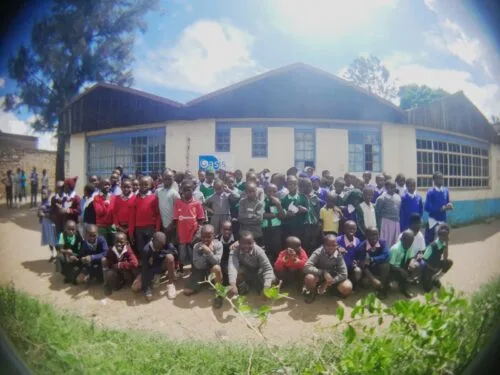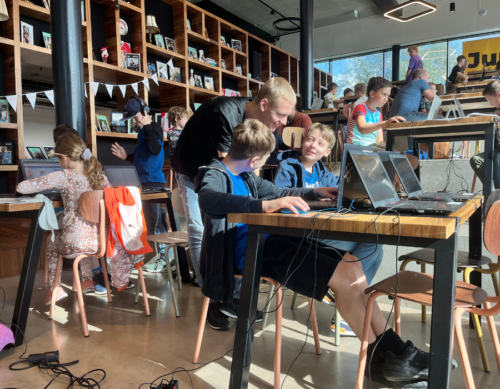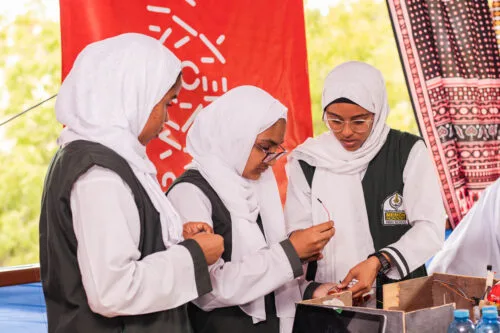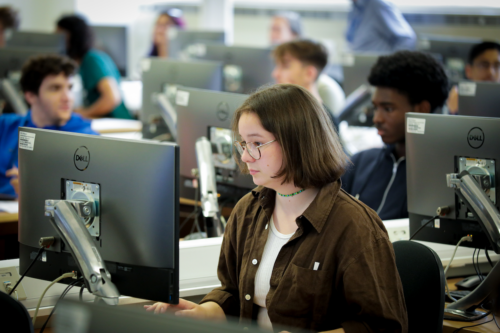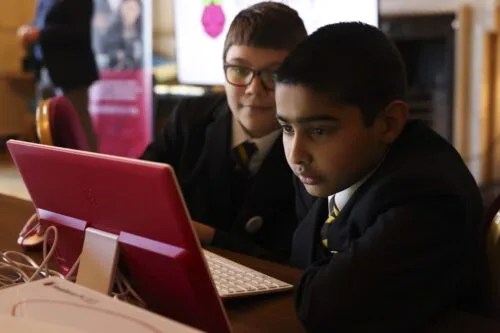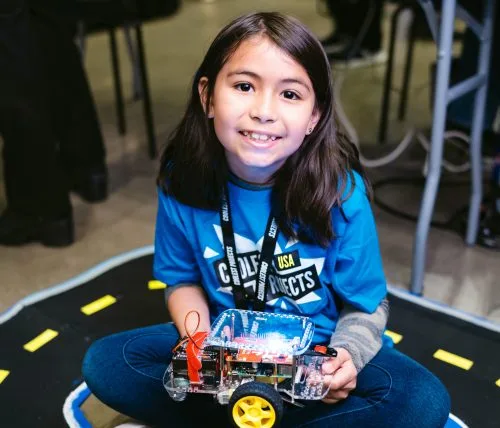Autor: Maria Richter
-

Coolest Projects 2024: 7197 young tech creators showcase their projects online
Reading Time: 5 minutesOur Coolest Projects 2024 online showcase has come to a close, with 7197 young people from 43 countries sharing the incredible things they have made with code. A huge congratulations to everyone who took part! Coolest Projects is our annual global celebration of young digital creators and the cool things they make…
-

Create anytime, anywhere with OctoStudio
Reading Time: 5 minutesToday our friends Mitch Resnick and Natalie Rusk from MIT’s Lifelong Kindergarten group tell you about OctoStudio, their free mobile app for children to create with code. Find their companion article for teachers in the upcoming issue of Hello World magazine, out for free on Monday 1 July. When people see our…
-

Introducing a computing curriculum in Odisha
Reading Time: 5 minutesWe are working with two partner organisations in Odisha, India, to develop and roll out the IT & Coding Curriculum (Kaushali), a computing curriculum for government high schools. Last year we launched the first part of the curriculum and rolled out teacher training. Read on to find out what we have learned…
-

A teacher’s guide to teaching Experience AI lessons
Reading Time: 5 minutesToday, Laura James, Head of Computing and ICT at King Edward’s School in Bath, UK, shares how Experience AI has transformed how she teaches her students about artificial intelligence. This article will also appear in issue 24 of Hello World magazine, which will be available for free from 1 July and focuses…
-

Young people receive their data from space and Astro Pi certificates
Reading Time: 4 minutesAcross Europe and beyond, teams of young people are receiving data from the International Space Station (ISS) this week. That’s because they participated in the annual European Astro Pi Challenge, the unique programme we deliver in collaboration with ESA Education to give kids the chance to write code that runs in space.…
-

Imagining students’ progression in the era of generative AI
Reading Time: 6 minutesGenerative artificial intelligence (AI) tools are becoming more easily accessible to learners and educators, and increasingly better at generating code solutions to programming tasks, code explanations, computing lesson plans, and other learning resources. This raises many questions for educators in terms of what and how we teach students about computing and AI,…
-

The Clubs Conference is coming back
Reading Time: 3 minutesFollowing the huge success of last year’s Clubs Conference, we are delighted to announce that we will be hosting the second-ever Clubs Conference on Saturday 30 November and Sunday 1 December 2024 in Cambridge, UK. The event will be a weekend of learning and connecting for volunteers and educators involved in Code…
-

What would an IPO mean for the Raspberry Pi Foundation?
Reading Time: 7 minutesOn 22 May 2024, we announced that we are intending to list the Foundation’s commercial subsidiary, Raspberry Pi Ltd, on the Main Market of the London Stock Exchange. This is called an Initial Public Offering (IPO). The IPO process is — quite rightly — highly regulated, and information about the company and…
-

Introducing classroom management to the Code Editor
Reading Time: 4 minutesI’m excited to announce that we’re developing a new set of Code Editor features to help school teachers run text-based coding lessons with their students. New Code Editor features for teaching Last year we released our free Code Editor and made it available as an open source project. Right now we’re developing…
-

Gaining skills and confidence: The impact of Code Club and CoderDojo
Reading Time: 4 minutesThrough Code Club and CoderDojo we support the world’s largest network of free informal computing clubs for young people. Code Club is a global network of after-school coding clubs for learners aged 9 to 13, where educators and other volunteers help young people learn about coding and digital making CoderDojo is a…
-

An update from the Raspberry Pi Computing Education Research Centre
Reading Time: 7 minutesIt’s been nearly two years since the launch of the Raspberry Pi Computing Education Research Centre. Today, the Centre’s Director Dr Sue Sentance shares an update about the Centre’s work. The Raspberry Pi Computing Education Research Centre (RPCERC) is unique for two reasons: we are a joint initiative between the University of…
-

Teaching a generation of AI innovators in Malaysia with Experience AI
Reading Time: 4 minutesToday’s blog is from Aimy Lee, Chief Operating Officer at Penang Science Cluster, part of our global partner network for Experience AI. Artificial intelligence (AI) is transforming the world at an incredible pace, and at Penang Science Cluster, we are determined to be at the forefront of this fast-changing landscape. The Malaysian…
-

Get young people making interactive websites with JavaScript and our ‘More web’ path
Reading Time: 5 minutesModern web design has turned websites from static and boring walls of information into ways of providing fun and engaging experiences to the user. Our new ‘More web’ project path shows young creators how to add interaction and animation to a webpage through JavaScript code. Why learn JavaScript? As of 2024, JavaScript…
-

Learning from our hybrid training programme for youth and community organisations
Reading Time: 5 minutesAt the Raspberry Pi Foundation, we aim to democratise access to digital skills and technologies. One of the ways we do this is via partnerships with youth and community organisations that deliver frontline services to young people experiencing educational disadvantage. In 2023 we delivered a hybrid training programme to 14 youth organisations…
-

Young people’s Astro Pi code is sent to the International Space Station
Reading Time: 6 minutesYoung people taking part in the European Astro Pi Challenge are about to have their computer programs sent to the International Space Station (ISS). Astro Pi is run annually in collaboration by us and ESA Education, and offers two ways to get involved: Mission Zero and Mission Space Lab. This year, over…
-

Global Impact: Empowering young people in Kenya and South Africa
Reading Time: 5 minutesWe work with mission-aligned educational organisations all over the world to support young people’s computing education. In 2023 we established four partnerships in Kenya and South Africa with organisations Coder:LevelUp, Blue Roof, Oasis Mathare, and Tech Kidz Africa, which support young people in underserved communities. Our shared goal is to support educators…
-

Localising AI education: Adapting Experience AI for global impact
Reading Time: 6 minutesIt’s been almost a year since we launched our first set of Experience AI resources in the UK, and we’re now working with partner organisations to bring AI literacy to teachers and students all over the world. Developed by the Raspberry Pi Foundation and Google DeepMind, Experience AI provides everything that teachers…
-

Insights into students’ attitudes to using AI tools in programming education
Reading Time: 4 minutesEducators around the world are grappling with the problem of whether to use artificial intelligence (AI) tools in the classroom. As more and more teachers start exploring the ways to use these tools for teaching and learning computing, there is an urgent need to understand the impact of their use to make…
-

Careers in computer science: Two perspectives
Reading Time: 6 minutesAs educators, it’s important that we showcase the wide range of career opportunities available in the field of computing, not only to inspire learners, but also to help them feel sure they’re choosing to study a subject that is useful for their future. For example, a survey from the BBC in September…
-

New resource to help teachers make Computing culturally relevant
Reading Time: 6 minutesHere at the Raspberry Pi Foundation, we believe that it’s important that our academic research has a practical application. An important area of research we are engaged in is broadening participation in computing education by investigating how the subject can be made more culturally relevant — we have published several studies in…
-

Our new theory of change
Reading Time: 4 minutesOne of the Raspberry Pi Foundation’s core values is our focus on impact. This means that we are committed to learning from the best available evidence, and to being rigorous and transparent about the difference we’re making. Like many charities, an important part of our approach to achieving and measuring our impact…
